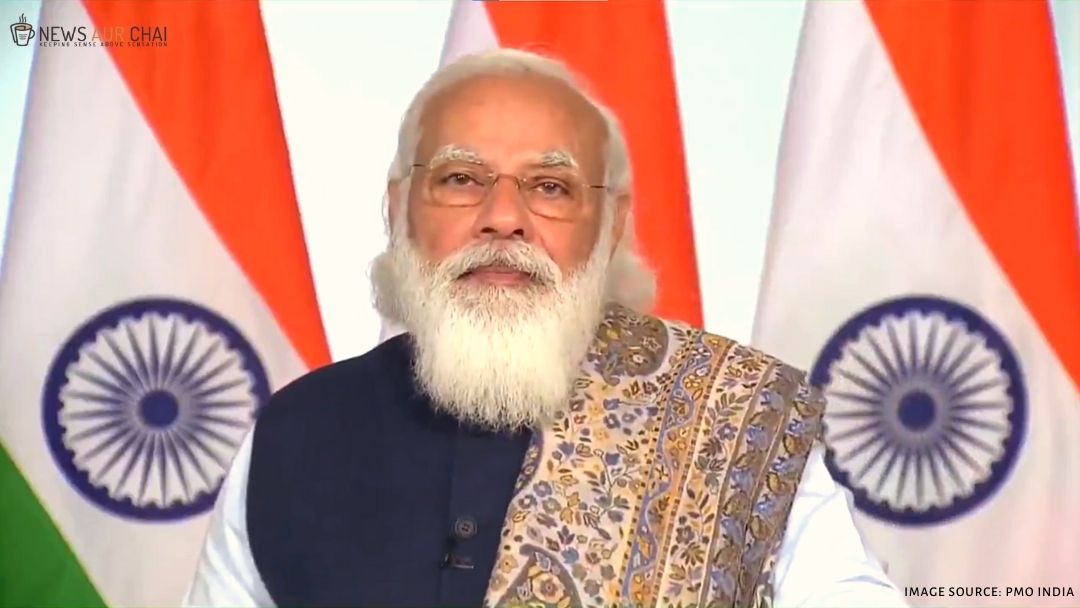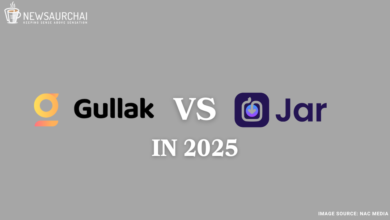
India’s COVID-19 vaccination drive started with after Prime Minister Narendra Modi inaugurated the vaccination program connecting 3,006 vaccination sites across the country via video-conferencing. Approximately 300 million healthcare workers will get COVID-19 vaccine doses on January 16 of the massive nationwide COVID-19 injection drive.
India is guided by a human-centric approach that will always work to further global good. #LargestVaccineDrive pic.twitter.com/hGC0WKTnvT
— Narendra Modi (@narendramodi) January 16, 2021
In his speech earlier, PM Modi mentioned that a difficult task phase is coming up, with over 300 million Indians being vaccinated in the first phase of the vaccination drive. The first phase’s primary focus will be on healthcare and frontline workers, the elderly, and those with chronic health conditions.
With India entering the final stage of its fight against COVID-19, several questions have raised concerning the vaccines.
Covishield and Covaxin for emergency use:
PM Modi on January 11 interacted with the chief ministers of all the states to debate the COVID-19 vaccination plan. During the interaction, PM Modi said the two approved indigenously made COVID-19 vaccines are less expensive than those available in other parts of the world. He also said that four others are in the process work aside from the two already approved vaccines.
PM Modi said, “Our experts have taken all precautions to supply the countrymen with effective vaccines”. Further, he indicated that coordination between Centre, states in fighting COVID-19 great example of federalism.
Public representatives aren’t a part of the three-crore corona warriors and frontline workers to be vaccinated first. In the first phase, the value of vaccination for these 3-crore people would be borne by the central government.
India’s drugs regulator has the approved Oxford vaccine Covishield which was being manufactured by the Serum Institute, and indigenously developed Covaxin manufactured by Bharat Biotech for restricted emergency use within the country. On January 2 2021, Modi had reviewed the status of COVID-19 and the vaccine preparedness across states and union territories at a high-level meeting.
Process for the vaccination drive:
• Priority Vaccination Group
India is gearing up to begin the vaccination for the population against the novel coronavirus. According to the National Expert Group on Vaccine Administration for Coronavirus, the healthcare workers, including doctors, nurses, medical officers and other support staff, including the medical students, will be vaccinated first.
Alongside them, the central and state police department, the armed forces, civil defence and prison staff, municipal workers, revenue services personnel and others engaged in COVID-19 containment activities, along with ministries of home, defence, housing and urban affairs and state governments will be given the second preference for the vaccination.
Next, senior citizens and chronic health conditions will be given priority, and the category is further divided into two for those above 60 and those between 50 and 60 years. After the priority vaccination is done, the remaining population will be vaccinated.
• Registration Process
The latest electoral roll for Lok Sabha and Assembly elections will identify the senior and priority citizens. For the remaining population, self-registration method will be available on CoWIN app during the later phases. The registration process will include uploading a government photon I.D. or Aadhaar and identification. Following this, a date-time and venue will be allotted for the vaccination. No on the spot registrations will be allowed.
• Vaccination Process
Registered participants will have to assemble on the appointed day in their prescribed venue. After the vaccination, they will be kept under observation for 30 mins, to check for any adverse reaction. Two doses of the vaccine will have to be taken by an individual 28 days apart, to complete the vaccination schedule. A five-member vaccination team will be overlooking the process.
Challenges in the vaccination drive:
There are quite a few issues that have come to notice in carrying not the vaccination drive, which could be dealt with ease.
The first one being the sates, would be required to be prepared for any adverse side effect following the vaccination procedure. In cases of any side effects, which has been seen in the USA, the government should immediately address the issue, in the absence of which, the public will lose their confidence in the vaccine.
Secondly, those who are vaccinated can still be the potential carrier of the SARS-CoV-2 virus and could unknowingly spread the disease to others, especially their family members who are proximity. The government may have to consider vaccinating the family members of the frontline workers or the elderly, to avoid such situations. The third challenge raised is that the states need to prioritise vaccination elderly and people with choric diseases residing in clusters and are most affected by COVID-19. This could be a targeted approach in the first phase since the vaccine’s availability will also be scarce.
One main concern raised is that it is unknown whether the vaccine will have a uniform efficiency rate and that the vaccine’s efficiency rate is still unknown for a lot of groups like infants, pregnant women, Immunocompromised people, people older than 65 years etc. Most likely, an equivalent vaccine will have different efficacy rates in diverse populations. Hence, supported the relevant data, our vaccination strategy also will need to change/evolve. Because the efficacy data of phase three trials of various vaccines are released, they ought to be included within the public vaccination programme for those that cannot afford the vaccines. The inclusion of multiple vaccines from different manufacturers would enable the govt to negotiate prices with the manufacturers.
Another challenge is that whoever can afford these vaccines should be allowed to shop for the open market. But the private health infrastructure shouldn’t be inhibited from creating its distribution. This also features the prices of vaccination. There are not any grounds for immunisation to be universally free, subsidised by the government. The nationwide vaccination drive is generally a decentralised process, where state governments have been preparing the list of elderly, people with chronic diseases, healthcare and frontline workers. Having a national health I.D. could have made the task of identifying people with chronic diseases much easier.
Data privacy concerns of varied stakeholders should be addressed. The private data should be anonymised before being made available to government agencies. The patient’s consent should be sought at every instance, even when her data is shared with health departments for public health interventions like vaccination.
These issues are yet to be addressed, worsening by the timeline of the trials that got reduced.
Criticism on hasty approval of vaccine
Several experts have raised concern over the “hasty approval” granted to the COVID-19 vaccines despite the shortage of adequate efficacy data. Central Drugs Standard Control Organization approved for restricted emergency use of the Oxford COVID-19 vaccine Covishield, manufactured by the Serum Institute of India, and Covaxin of Bharat Biotech.
However, India’s approval has made many sector experts uncomfortable because the vaccines are still within the trial stage. In an interview to CNBC-TV18, Dr Gagandeep Kang, Professor, Christian Medical College, Vellore and president of the board of Coalition for Epidemic said, “I’m completely unaware of any data that means that Covaxin has any efficacy against any SARS-CoV-2 strain, including the U.K. strain.” In conversation with Times of India, Kang also mentioned that he is baffled after reading the SEC document and further highlighted unavailability of relevant data for the vaccine, indicating that there needs to be transparency for the country’s efficient vaccination process.
Health officials have defended India’s decision to approve the Covid 19 vaccine without any efficacy data. It was a move that faced a lot of criticism amongst the speculation that the regulators may have fastened the process under the government’s wish of having a vaccine alongside the ones now authorised in other countries.
Bharat Biotech, which has developed an entire virion inactivated coronavirus vaccine, submitted safety and immunogenicity data on nearly 800 participants showing that the vaccine is safe and generates a strong immune reaction. Venugopal Somani, the drugs controller general of India and chief and other health officials, has suggested that the inactivated vaccine’s approval would help India with “more options” to combat emerging mutant strains.
Over the past fortnight, Indian laboratories have detected over 70 patients in several parts of the country with the fast-spreading variant with the N501Y mutation. But researchers say there’s no evidence to back the claim that the inactivated vaccine would work better against specific variants. Satyajit Rath, a medical immunologist and a visiting academician at the Indian Institute of Science Education and Research in Pune, told the BMJ, “To say a selected vaccine might help against the United Kingdom variant is an illusion.”
Bharat Biotech officials have indicated that their efficacy trial’s interim results involving 25,800 participants might be expected after March. Health officials have asserted that provisions in Indian drug rules permit accelerated approval under public health emergencies. Balram Bhargava, director-general of the Indian Council of Medical Research which has assisted Bharat Biotech in developing the vaccine, said, “In an epidemic situation, restricted use is taken into account on the idea of safety and immunogenicity while efficacy trials are ongoing. Immunogenicity data is a surrogate for efficacy.”
Some researchers have questioned the timing, remarking that India’s active cases of covid-19 have fallen from a peak of 1,000,000 cases in mid-September to under 230,000 in the week. However, on the average, around 18,000 new daily cases emerged over the past week.





